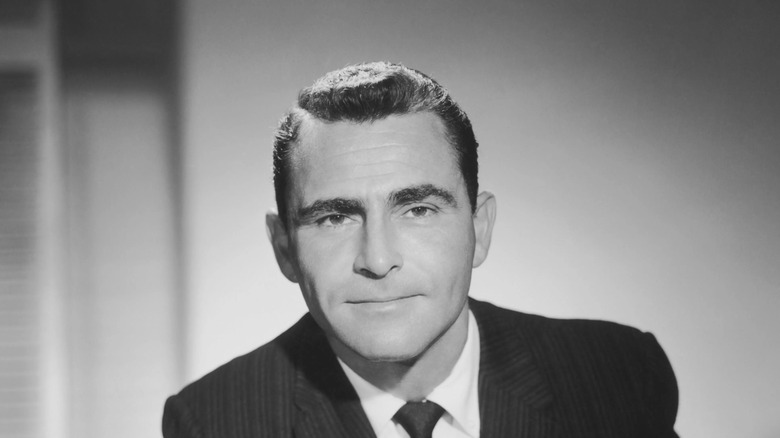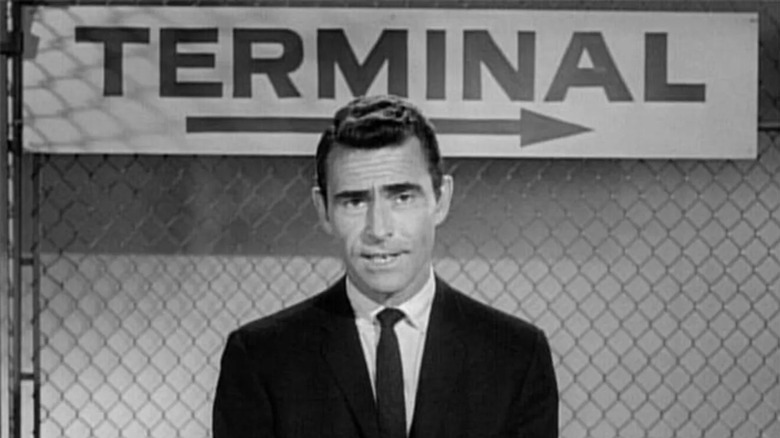Rod Serling Looked To His Real-Life Experience For The Title Of The Twilight Zone
"The Twilight Zone" is an absolutely foundational piece of American media. Its influences on the science fiction and horror genres are incalculable. The show, which ran on CBS from 1959 to 1964 in its original run, was the brainchild of Rod Serling, who served as both the host of the show and its head writer.
Every episode would be a stand-alone story in which a normal person would experience unexplainable and unusual events, usually resulting in some sort of twist and a moral being learned at the end. The show's episodes served as new American fables. The moralistic approach of the show was uncommon for science fiction at the time but became a mainstay of the genre.
The show, led by Serling, pushed the boundaries of its medium, but that did not always mean it always did so successfully. The show eventually was extended from half an hour to an hour, which many critics believed to have led to the show's decline in quality in its fourth season. Serling's direct involvement in the writing was also dwindling at that time. The show's eventual decline was evidence of how vital Serling was to the operation, both on and off screen. He even came up with the show's famous title, which came from his real-life experience in World War II.
From his darkest days
Serling served in World War II as an Army paratrooper. His experience and trauma from his time in the war are reflected in the dark and moralistic tones of his writing. According to a Smithsonian Magazine article, it was from his paratrooping days that he came up with the name "The Twilight Zone." The twilight zone is the moment the plane goes down and can no longer see the horizon.
After the show's fifth season it was canceled, although Serling would claim that the cancellation was more a mutual agreement. He bemoaned the direction the network wanted him to go in, wanting more actual monsters and less parable. He discussed this in the last interview of his life in 1975.
"I think you can say more obviously in the framework of an honest-to-Christ contemporary piece so that you don't have to talk in parables, in symbolisms and the rest of it, but this is not to say that you can't make a point of social criticism using science fiction or fantasy as your backdrop. We did that on 'Twilight Zone' a lot, but there's no room for that kind of subtlety anymore. The problems are so much with us that they have to be attacked directly."
Besides attempting and failing to get a movie made, Serling was done with "The Twilight Zone" after its cancellation. Despite this, he left a permanent stamp on the American psyche and on the entertainment industry. And a big part of that is the eerie name that he pulled out of what were likely some of the darkest days of his life.

